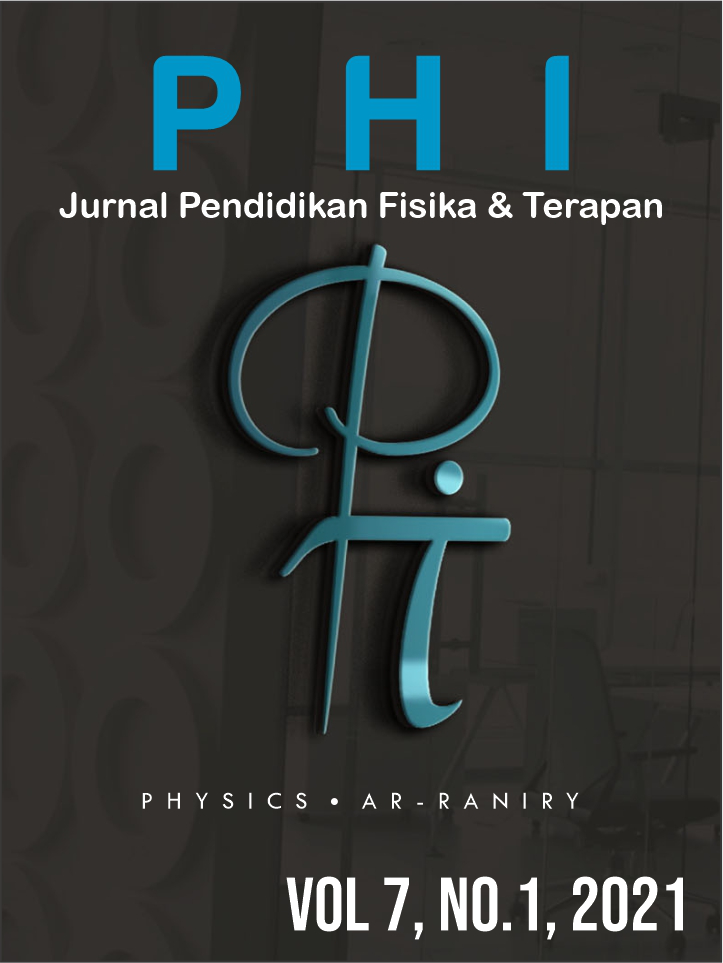PENGARUH MODEL PEMBELAJARAN KOOPERATIF TIPE GROUP INVESTIGATION BERBANTUAN MIND MAPP TERHADAP HASIL BELAJAR SISWA PADA MATERI PERPINDAHAN KALOR
DOI:
https://doi.org/10.22373/p-jpft.v7i1.11032Keywords:
GROUP INVESTIGATION, LEARNING OUTCOMES, MINDMAPAbstract
pembelajaran kooperatif tipe group investigation (GI) berbantuan mind map terhadap hasil siswa pada materi perpindahan kalor siswa kelas XI SMKN 1 Proppo Pamekasan.Penelitian ini merupakan jenis penelitian kuasi eksperimen (quasi experimental research) dengan desain non-equivalent pretest-posttest control group design. Subjek penelitian ini seluruh siswa kelas XI yang terdiri dari 40 siswa yang terbagi menjadi 2 kelas.Pengambilan sampel dilakukan dengan teknik simpel random sampling untuk memperoleh 1 kelas sebagai kelas eksperimen dan 1 kelas sebagai kontrol. Data hasil belajar dikumpulkn melalui tes pilihan ganda sebanyak 20 item Uji prasyarat analisis terdiri dari uji normalitas dan uji homogenitas. Analisis data menggunakan teknik statistik parametrik yaitu uji-t dengan menggunakan independent samples test dengan bantuan program SPSS for windows versi 25.Hasil penelitian menunjukkan bahwa model pembelajaran kooperatif tipe GI berbantuan mindmap berpengaruh terhadap hasil belajar siswa. Hal ini dibuktikan dari hasil analisis Uji-t dengan probabilitas nilai sig (2-tailed) 0,000 < 0,05. Hasil penelitian menunjukkan terdapat perbedaan hasil belajar antara siswa yang belajar denganDownloads
Published
2022-04-04
Issue
Section
Artikel
License
Authors who publish with Jurnal Phi agree to the following terms:
- Authors retain copyright and grant the journal right of first publication with the work simultaneously licensed under a Creative Commons Attribution License (CC BY 4.0) that allows others to share the work with an acknowledgment of the work's authorship and initial publication in this journal.
- Authors are able to enter into separate, additional contractual arrangements for the non-exclusive distribution of the journal's published version of the work (e.g., post it to an institutional repository or publish it in a book), with an acknowledgment of its initial publication in this journal.
- Authors are permitted and encouraged to post their work online (e.g., in institutional repositories or on their website) prior to and during the submission process, as it can lead to productive exchanges, as well as earlier and greater citation of published work (See The Effect of Open Access).

















